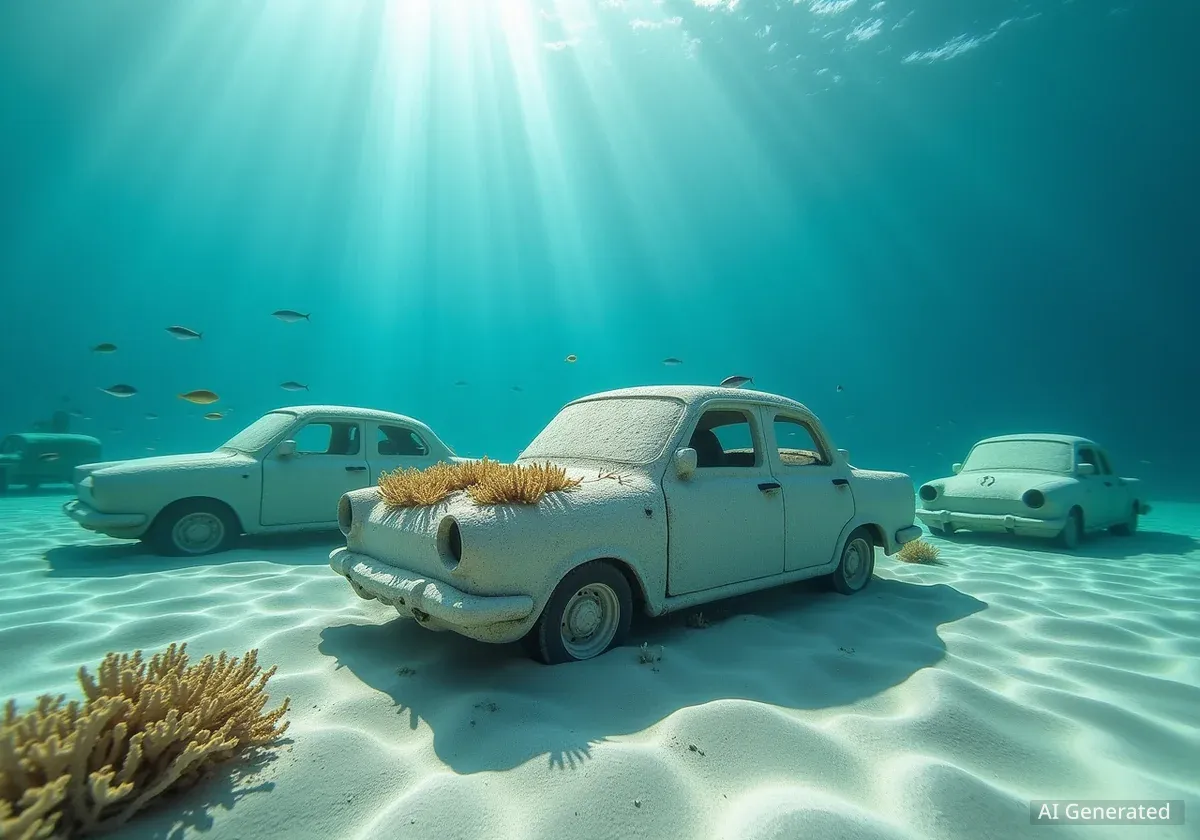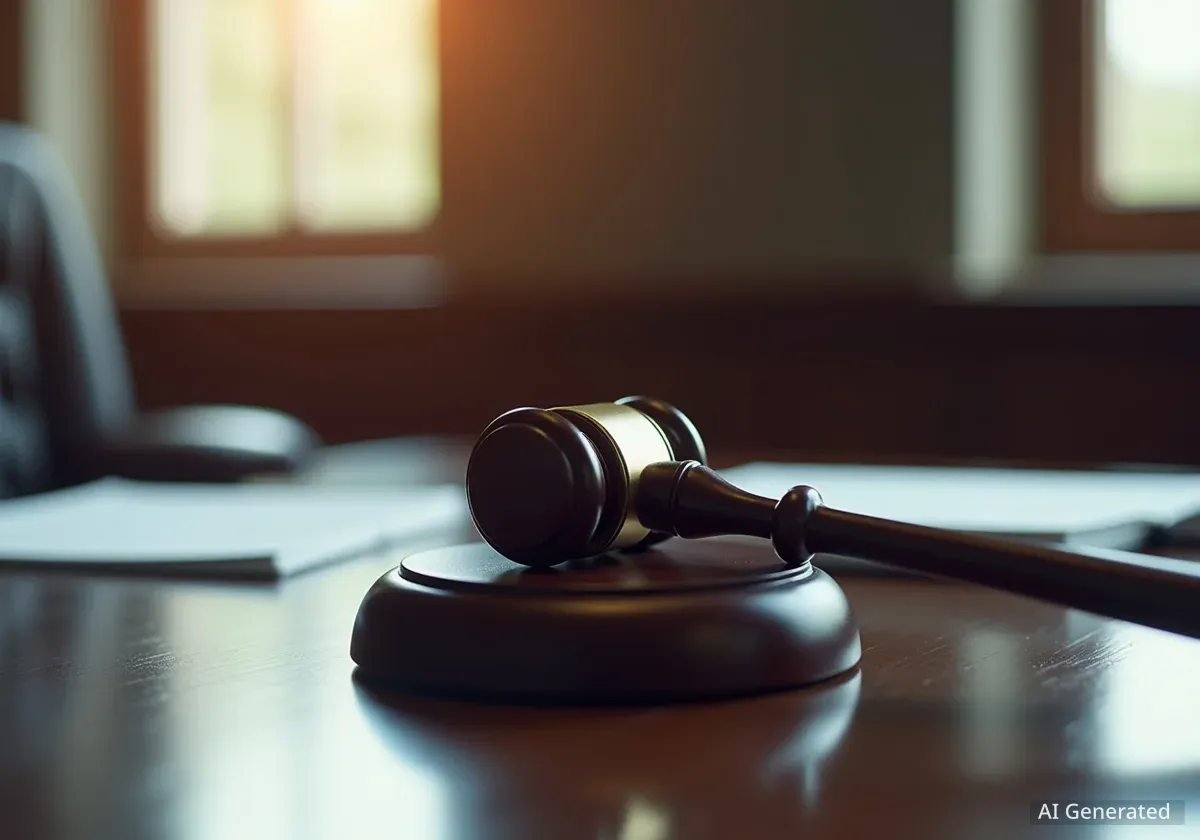A recent study for 2024 has identified potential water quality issues at several beaches across Massachusetts. The report, titled “Safe for Swimming?,” found that many coastal areas showed elevated levels of fecal bacteria. This raises concerns for public health and the enjoyment of popular swimming locations, particularly on Cape Cod.
Key Takeaways
- Over half of tested Massachusetts beaches had potentially unsafe bacteria levels on at least one day in 2024.
- Keyes Memorial Beach in Hyannis was likely unsafe for swimming on 37% of its testing days.
- Contaminated water can cause various illnesses, including stomach problems and skin rashes.
- Outdated wastewater systems and stormwater runoff are major sources of pollution.
- Barnstable has a 30-year plan to upgrade its wastewater infrastructure.
Fecal Bacteria Levels at Massachusetts Beaches
The “Safe for Swimming?” report, published by Environment Massachusetts, analyzed 2024 water testing data from coastal areas. It revealed that a significant number of beaches experienced fecal contamination. This contamination can make water unsafe for swimming.
Specifically, the study examined 563 beaches across Massachusetts. Of these, 226 beaches, which is about 58%, recorded potentially unsafe levels of fecal bacteria on at least one testing day. This indicates a widespread issue affecting various parts of the state’s coastline.
Cape Cod and Islands Beaches Affected
Among the 226 beaches with concerns, 47 were deemed likely unsafe for swimming on 25% or more of their testing days. On Cape Cod, Keyes Memorial Beach in Hyannis showed particularly high numbers. This popular beach was likely unsafe for swimming on 37% of its testing days, totaling 10 days.
Another area with high percentages was Washing Pond on Nantucket, where water quality was likely unsafe on 46% of testing days. These figures highlight specific areas where water pollution poses a more frequent risk to swimmers.
Fact Check
- 58% of 563 tested Massachusetts beaches had potentially unsafe fecal bacteria levels on at least one day.
- Keyes Memorial Beach was likely unsafe on 37% (10 days) of its testing days.
- Washing Pond on Nantucket was likely unsafe on 46% of its testing days.
Health Risks from Contaminated Water
Swimming in water with high levels of fecal bacteria can lead to various health problems. According to the report, these can include gastrointestinal distress, nausea, diarrhea, and skin rashes. The U.S. Environmental Protection Agency (EPA) sets a “safe” parameter for fecal indicators. Exceeding this threshold suggests an estimated 32 illnesses per 1,000 swimmers.
“Pollution is still plaguing too many of the places where we swim,” stated John Rumpler, clean water director for Environment Massachusetts and a co-author of the report.
Felicia Penn, a Barnstable Town Council member for Precinct 13, which includes Keyes Beach, acknowledged these issues. She affirmed that the town is actively working on wastewater management. However, she noted that “there is much more work to be done.” The town provides updates on beach and pond closings on its official website.
Thomas McKean, director of inspectional services for the town of Barnstable Health Division, provided further details. He confirmed that Keyes Beach was closed only twice in 2023 due to unacceptable contaminant levels. This shows the town's monitoring efforts.
Primary Sources of Water Pollution
The study identifies several key factors contributing to fecal contamination in coastal waters. One major source is sewer overflows. These occur when outdated and deteriorating sewage systems cannot handle the volume of wastewater, especially during heavy rains. This leads to untreated sewage entering waterways.
On Cape Cod, about 85% of waste is managed by septic systems. Many of these systems were installed in the 1950s when the population was much smaller, around 50,000 residents. Today, the year-round population has grown to over 230,000. These older septic systems are often not equipped to handle the increased wastewater volume, leading to failures and pollution.
Background Information
Cape Cod's tourism industry generates over $2 billion annually. The region boasts more than 550 miles of coastline and over 50 small saltwater bays, along with numerous ponds and lakes. These natural assets are crucial for the local economy and quality of life, making water quality a significant concern.
Impact of Development and Runoff
Another significant source of pollution is runoff from development. As more land is developed, there are more impervious surfaces like parking lots, roads, and larger homes. These surfaces prevent rainwater from soaking into the ground naturally. Instead, water flows over them, picking up pollutants and carrying them directly into waterways.
This development also reduces wetlands and tree cover. Wetlands and forests naturally filter pollutants from water. Their loss decreases the environment’s ability to clean water before it reaches coastal areas. This contributes to higher levels of contaminants.
Long-Term Solutions and Future Actions
Addressing water pollution requires long-term investment and strategic planning. In 2020, the town of Barnstable approved a Comprehensive Wastewater Management Plan. This plan aims to install new sewage pipes and upgrade existing treatment facilities over 30 years. This project represents a substantial effort to modernize the town’s infrastructure.
Thomas McKean confirmed the 30-year timeline for the plan’s completion. He also stated that all beaches in Barnstable are sampled and tested weekly. This testing follows state bathing beach regulations and is conducted at the Barnstable County Laboratory.
Funding and Innovative Approaches
The estimated cost for Barnstable’s wastewater management plan is over $1 billion. Mark Milne, Barnstable Director of Finance, considers this a “reasonable” figure if public sewering is the only option. However, efforts are underway to explore alternative solutions.
Milne highlighted the work of the Massachusetts Alternative Septic System Test Center in Sandwich. This facility researches and develops innovative on-site septic treatment technologies. These alternatives could potentially reduce the need for extensive public sewer systems and lower overall costs.
- Barnstable Plan: 30-year Comprehensive Wastewater Management Plan.
- Estimated Cost: Over $1 billion.
- Alternative Research: Massachusetts Alternative Septic System Test Center.
Legislative Efforts and Community Involvement
State legislators in Massachusetts have also proposed measures to combat water pollution. House Bill No. 1046 aims to eliminate all combined sewer overflows into Massachusetts waterways by December 31, 2050. This bill is currently under review by the Joint Committee on Environment and Natural Resources.
“It’s time for Massachusetts officials to commit themselves to the goal of clean, safe beaches and commit the resources to achieve it,” urged John Rumpler.
Other Cape Cod communities, including Yarmouth, Orleans, and Mashpee, are also undertaking long-term projects. These projects focus on replacing outdated septic systems with modern sewage treatment facilities. Local organizations like the Association to Preserve Cape Cod and the Barnstable Clean Water Coalition are actively working to protect and restore the region’s water quality.
The “Safe for Swimming?” study also recommends expanding and improving beach testing methods. Better testing can help identify areas of environmental concern more effectively. This report is the fifth of its kind conducted by Environment Massachusetts, underscoring ongoing efforts to monitor and improve water quality.





